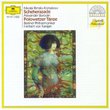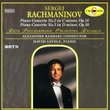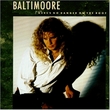| All Artists: Anton Webern, Galina Ustvolskaya, Valentin Silvestrov, Pierre Boulez Title: Variations: Anton Webern, Galina Ustvolskaya, Valentin Silvestrov, Pierre Boulez Members Wishing: 2 Total Copies: 0 Label: Ecm Import Release Date: 11/18/2008 Album Type: Import Genre: Classical Styles: Opera & Classical Vocal, Forms & Genres, Sonatas, Historical Periods, Modern, 20th, & 21st Century Number of Discs: 1 SwapaCD Credits: 1 UPCs: 028944993622, 0028944993622 |
Search - Anton Webern, Galina Ustvolskaya, Valentin Silvestrov :: Variations: Anton Webern, Galina Ustvolskaya, Valentin Silvestrov, Pierre Boulez
 | Anton Webern, Galina Ustvolskaya, Valentin Silvestrov Variations: Anton Webern, Galina Ustvolskaya, Valentin Silvestrov, Pierre Boulez Genre: Classical |
Larger Image |
CD DetailsSimilar CDs
|
CD ReviewsAn original programme of 20th century solo piano pieces Christopher Culver | 08/30/2009 (4 out of 5 stars) "I was surprised to come across this ECM recording from 1996 featuring five modernist solo piano works all based on the notion of variation. Some of these are extremely demanding works, so I thought it strange that I've never heard pianist Ingrid Karlen's name before, and as the music here is rarely performed I expected the release to generate more buzz.
Anton Webern's Variations op. 27 (1936) are a mighy contribution to piano literature. Webern may have followed his teacher Schoenberg's example in writing twelve-tone music, but his language is highly personal, eschewing post-Romantic emotionalism for elegance and succint lengths. Stravinsky compared Webern's music to the labours of a diamond cutter, and I often think about that when hearing pieces like the Variations. While a serial work, the Variations have much gestalt and one hears the same elements return again and again, though unusually Webern put the original theme in the last movement instead of the first. I've heard many performances of this piece, and I think Karlen's stands up well against the others. Pierre Boulez's twelve "Notations" for piano solo are his earliest acknowledged opus, written in 1945 when he had just discovered the music of Schoenberg and Webern (the latter only from the Symphony op. 21 and Concerto op. 24) Initially put away after their composition, two Notations (5 and 9) were quietly used in "Pli selon pli", and then the whole collection was fully uncovered in the 1970s, when the composer embarked on orchestrating them. While the orchestral versions--much longer and of course with a greater range of colour--are impressive, the original piano Notations are a delight as well. Each consists only of twelve measures, featuring a twelve-tone row in much the same fashion as the work of Anton Webern. In spite of certain formal commonalities, however, the pieces widely range from free (e.g. 1) to tightly rhythmic (4, 6), contemplative (3) to frenetic (2). They bear very little resemblance to the three piano sonatas Boulez was to write over the next decade, where he had moved beyond the imitating the Second Viennese School and writing for the instrument with never before heard grand lengths, bleep-bloop sonorities, and total abstraction. I cannot be too enthusiastic about Karlen's performance, however, as she plays these pieces with a heavy hand, often sounding like she's mauling them. I'd recommend instead the spritely performance by Pierre-Laurent Aimard on a Deutsche Grammophon disc. While Valentin Silvestrov has gained a wide following for his recent anguished music which bemoans the loss of the common tonal music language of Romanticism, his contribution "Elegy" (1967) is from his early, avant-garde period and the most extreme serialist statement here. Over its nearly seven minutes, the piece moves through a landscape of brutal, fractured lines and disturbing silences. While it's for the best that Silvestrov turned away from the mid-century avant-garde, as he then developed a highly original style, this early effort is still quite interesting. Against all this atonalism, the listener is shocked to encounter the sometimes turbulent but nonetheless common harmonies of two piano sonatas by Galina Ustvolskaya, the Third (1953) and the Fifth (1986). Modernisms here are more subtle, such as the repeated tones of the Fifth that carry on agonizingly. I've never been able to get into Ustvolskaya's music, with its inscrutability and generally unaltered mood. Nevertheless, perhaps this music would possibly appeal to those who love the piano writing of Schnittke and Shostakovich. None of the performances here are must-have, but this disc should hold some attraction for fans of 20-century modernism. I still remain puzzled, however, that Ms. Karlen released this one disc and then seems to have disappeared from the recording world." |








